
What also made the events of Flight 847 so famous was the actions of lead Flight Attendant Uli Derickson, whose calm manner, bravery and professionalism saved the lives of so many of her passengers.
This is her story.

Uli Derickson was born Ulrike Patzelt on August 8, 1944 in Aussie an der Elbe, Czechoslovakia, near the German border. She and her parents were eventually expelled to East Germany, before escaping to West Germany a few years later.
She worked as an au pair in Switzerland and Britain before moving to Connecticut in 1967. Uli had always loved to travel, and following her move to the US, she applied to become a Flight Attendant for TWA.
A Day Like Any Other
That Friday morning had begun like any other. Derickson joined her colleague’s Flight Attendants Judith Cox, Hazel Hesp, Elizabeth Howes and Helen Sheahan; along with Captain John Testrake, First Officer Philip Maresca and Flight Engineer Christian Zimmermann at Athens airport, where they awaited the arrival of their Boeing 727-200 (N64339), on route from Cairo. The crew would then take the aircraft to Rome before flight 847 continued to Boston and Los Angeles, with a final destination of San Diego.
All seemed normal as the 152 passengers boarded the jet. Little did they know that among them were two well-dressed Amal Terrorists, later identified as Mohammed Ali Hamadi and Hassan Izz-Al-Din.
At 10:10 am, the aircraft took off, and the crew set to work preparing the inflight service. In the first-class cabin, Derickson had been pouring drinks. She was coming out of the galley with a beverage tray when the hijackers struck.
Initial Attack
Barreling down the aisle, screaming in Arabic, brandishing guns and grenades, they spotted Uli and kicked her in the chest before grabbing her by the throat and slamming her against the cockpit door. A 9mm pistol was then placed to her head as the hijacker screamed: “Americans die! Come to die!” and demanded she took them to the flight deck.
A shaking Derickson notified the pilot via the inter-phone what had happened, but the other hijacker began kicking down the door. Once inside, she could only watch in horror as the men pistol-whipped the pilots and flight engineer.
It quickly became clear that the two assailants could speak very little English, making dealing with their demands extremely difficult. Derickson later discovered that one of them did however, speak German, and as she was fluent in the language, she took over negotiations, translating their instructions to the pilots.
In the cabin, Hamadi and Izz-Al-Din re-positioned all the passengers – men in the window seats, women on the aisles. He told them to put their hands behind their heads and elbows on their knees down below the seat. One hijacker then patrolled the aisle while the other was in the cockpit. “One more move, one more sound, and we’ll kill you,” the terrorists warned, indiscriminately striking any passenger who made a sound.
First Diversion
Whilst still in Greek airspace, the 727 was diverted to Beirut International Airport (BEY) in Lebanon. About an hour from landing, the terrorists demanded to see everyone’s passports, scouring the cabin for anyone who might be with law enforcement.
One American, Kurt Carlson, whispered to Derickson that he had two passports, a blue civilian one in his briefcase overhead and his official red passport in his coat pocket, which was hanging in the closet up front. As the hijackers checked photos, Derickson risked her life by passing off another passenger’s passport photo as Carlson to protect him.
As the aircraft neared the airport, air traffic controllers initially refused to let the plane land, blocking the runway with buses and other obstacles. At the time, Beirut was in the midst of civil war, and the last thing the authorities wanted was another skyjacking to deal with.
Captain Testrake argued with ATC: “He has pulled a hand grenade pin and is ready to blow up the aircraft if he has to. We must. I repeat we must land in Beirut. We must land at Beirut. No alternative.” Eventually, they grudgingly replied: “Very well. Land. Land quietly. Land quietly.”
By now, Derickson had begun to build a rapport with the hijackers. Once on the ground, she began to plead with them to release all women and children. The hijackers refused her pleas.
She tried again, this time asking for the release of the elderly women and children. Again they refused.
She asked again, and this time they relented. Derickson rounded up the 17 elderly females and two children and coaxed them down the emergency slide, even as some resisted, too terrified to move.
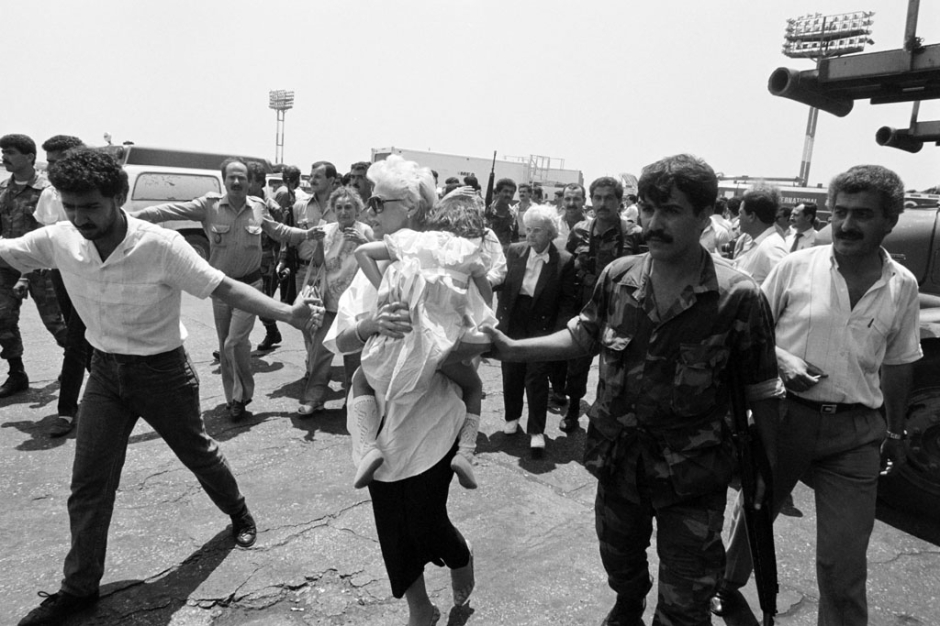
After several hours on the ground, the 727 was refuelled, and the hijackers demanded the aircraft be flown to Algiers.
US Veterans Outed
It was now that Hammadi discovered the six US military personnel travelling home. Four had no passports, only green ID cards, but their youthful appearance and short haircuts gave them away. He began screaming at them in Arabic.
“You could tell he had a real hatred for the military,” Kurt Carlson said.
Robert Stethem, a US Navy Seabee diver and another military officer Clifton Suggs were dragged out of their seats and marched to the cockpit at gunpoint. Here they were beaten mercilessly with an armrest that one of the hijackers had torn off the flight engineer’s seat.
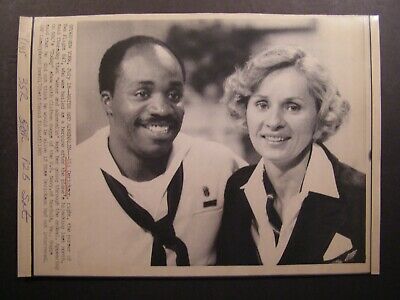
When they had finished their attack, Derickson tried to administer first aid to the injured men and asked if she could apply bandages over his badly injured face. The hijacker refused and shouted: “American pig must suffer. Must die!”
As the plane neared Algeria, the authorities also closed the airport. US President Ronald Regan issued an urgent plea to Algerian President Chadli Bendjedid, and they eventually relented and allowed the aircraft to land.
On The Ground Again
Once on the ground, the hijackers demanded food and fuel, and Derickson again pleaded for them to release her passengers. During this time, the hijackers stumbled across Kurt Carlson’s red passport and immediately demanded to know if a US diplomat was on board. Carlson initially remained silent.
But the hijackers then threatened to start from the back row of the plane and come forward, and if the owner of the passport had not revealed himself by the time they matched him from the photo, they would kill him at once. Carlson had no choice but to stand up and identify himself.
“The hijacker came up and he put his 9mm on my forehead and he said, ‘CIA or FBI?’ in broken English. And I said, ‘No, Army Reserve,” Carlson later said.
He now became another bargaining tool in their quest for fuel. He later said that they beat him so severely he prayed to die. He prayed for his family, for himself and even for the hijackers. But the tower continued to make excuses for not bringing fuel. Captain Testrake yelled that an American was in imminent danger of dying and clicked his microphone at Carlson to cue him to scream with each blow so the tower could hear him.

“Why Do You Have To Hit Those People?”
Uli Derickson slipped in between them and pleaded for them to stop, again putting her own life in danger. “Don’t you hit that person, she would shout,” a passenger later told The New York Times. “Why do you have to hit those people?”
But still, no fuel came. Unbelievably airport officials refused to refuel the jet without payment, and TWA had no Shell account at Algiers. The terrorists were getting agitated and once again threatened violence. Testrake angrily told the tower that the US embassy would pay for it. Again they refused.
Derickson could take no more. Speaking to People Magazine some years later, Uli explained: “They are screaming for cash or a credit card, and the hijackers are threatening to kill one passenger every five minutes if we don’t get the fuel. The co-pilot is screaming his lungs out to the ground [crew] not to be stupid, we don’t carry a charge card…. I asked for permission to go to my purse and I got out my [credit] card. They put 6,000 gallons of jet fuel on to my Shell credit card, about $5,500 worth.”
After five hours on the ground the aircraft took off, once again bound for Beirut.

Communication Was Key
Derickson later spoke of how she realised early on that communication was her most potent tool against the hijackers. At times she even felt she was gaining some control over the situation. She talked to them about the Quran, offered them tea and food, commented on the American branded trainers one of them wore and told them about her 7-year-old son at home. Occasionally she sang Brahms’s Lullaby softly in German, calming both herself and the hijackers.
She also revealed how the most terrifying moment for her was when the more violent of the two asked her to marry him. “This is not the time or the place to talk about this,” she replied in a smooth but firm tone.
She also calmed and reassured her passengers, advising them to do as the terrorists demanded, keeping their heads down and remain silent. She defended her passengers and pleaded with the men to stop the beatings. “Stop it!” she said, looking them straight in the eye and physically grabbing the terrorist, “Stop it right now! They’re doing what you tell them to do.”
But as the plane crossed the Mediterranean, the mood on board grew darker. Robert Stethem was once again singled out, and during the flight back to Beirut, he was blindfolded, bounded, gagged and repeatedly tortured.
Speaking of the attack on Stethem at the subsequent inquest, Derickson told the harrowing tale:
“The German-speaking hijacker called Robert Stethem to the first-class section. It’s a night flight now. The hijacker with grenades took off his own shirt and his undershirt, and he took out a razor blade. I started getting very emotional because I thought of throat-cutting. All the lights were turned off in the cabin. Only the galley lights were on. Then the hijacker started cutting his undershirt into small strips. He’s blindfolding Stethem. Very tight. And then he takes one of those thick elastic cords from a suitcase and ties up his hands, very, very high behind his back and pulls that elastic cord to the very end. Stethem’s hands immediately turn white. Then they drag him to the cockpit door, and they are beating Robert Stethem with the armrest they ripped off the flight engineer’s seat. They were jumping in the air and landing full force on his body. He must have had all his ribs broken. I was sitting only 15 feet away. I couldn’t listen to it. I put my fingers in my ears. I will never forget it. I could still hear. They put the mike up to his face so his screams could be heard by the passengers. When they were finished, one of the hijackers picked him up like a cat picks up its kitten and dragged him over to a seat.…Now I’m telling….I’m telling Bob, Robert Stethem, to hang on. He was in tremendous pain. His arms had lost all feeling. I kept saying to this German-speaking hijacker, “Can I not untie his hands? We’re cooperating with you. Why are you doing this to these people?” He said, “No. Leave him alone. He’s just an American pig.” I kept asking, please. Then he let me untie his hands. It took me five minutes; the elastic was so tight. There was a carving knife hidden in the galley, but I didn’t want to bring it out to cut the cord. Then the hijacker told me to take him to a seat in coach. I’m lifting this man over passengers. He was hurt very badly”.
Incredible Bravery
Stethem never made a sound during the whole terrifying ordeal. Testimonials from passengers and flight crew spoke of his incredible bravery. Captain Testrake later said: “He [Stethem] was probably the bravest man I’ve ever seen in my life.”
It was well past midnight in the Middle East as flight 847 approached Beirut. Yet again, the airport tower tried to refuse permission to land. But Captain Testrake was adamant that they were running out of fuel, and the terrorists threatened to kill him. To make matters worse, the tower turned off the runway lights.
One of the hijackers then grabbed the radio and shouted: “We are suicide terrorists! If you don’t let us land, we will crash the plane into your control tower, or fly it to Baabda and crash into the Presidential Palace!”.
Unsure if there would be a suicide crash or if they would run out of fuel, Testrake told the passengers to prepare for a crash landing. The tower relented and switched the lights back on, and the 727 touched down for the second time in Beirut.
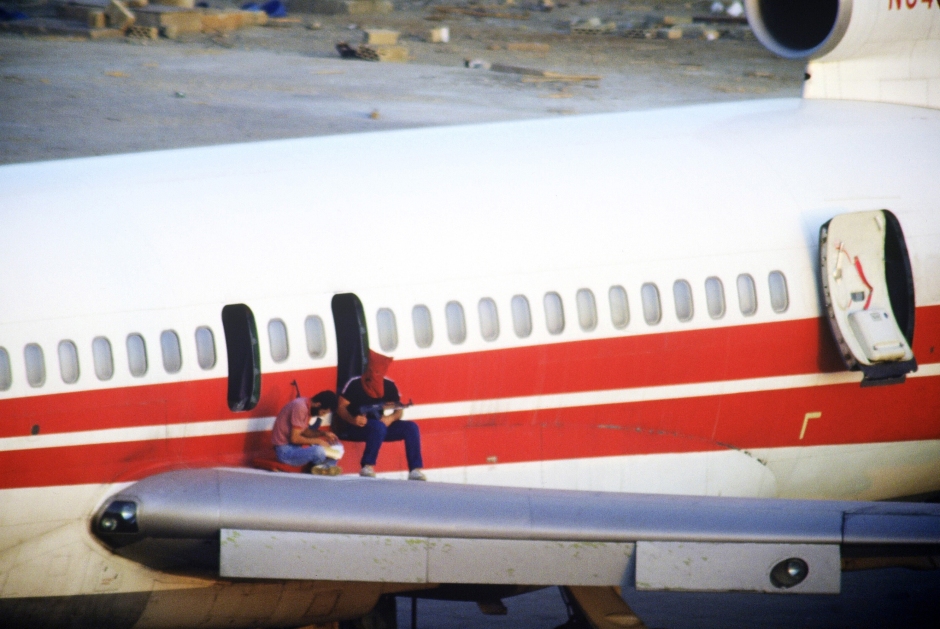
Once again, the hijackers demanded fuel and asked to speak to an Amal official. Neither came. They then grabbed the horrifically injured Stethem, dragging him into the cockpit, where they beat him further in an attempt to get him to scream into the microphone. Testrake later said: “The sounds of the beatings were sickening. If I had a gun, I wouldn’t bother to hesitate in shooting both the bastards”.
Still no one came.

Robert Stethem was then dragged to a passenger door and shot in the temple; his body dumped onto the tarmac below. The captain desperately screamed over the radio: “He just killed a passenger! He just killed a passenger!” before one of the hijackers declared: “You see? You now believe it. There will be another in five minutes.”
Clinton Suggs was now pulled to the front of the aircraft and subjected to another beating. Uli put herself in harm’s way again yelling: “Enough, enough, we’re doing everything we asked!” The violent assault then stopped.
More Hijackers Board
Finally an Amal official and bodyguard went aboard the plane, where they remained for some time.
Earlier, the hijackers had demanded to know passengers who were Jewish or had Jewish-sounding names. To protect those passengers, Derickson had hidden their documents, telling the men that the passports did not indicate religious preference and shielded certain names.
As negotiations continued, a hijacker asked that all airport lights be turned off. Under cover of darkness, around a dozen additional terrorists boarded the jet with a supply of arms and ammunition.
Sadly Dericksons attempts to protect the Jewish passengers were futile, and seven American passengers alleged to have Jewish-sounding names were led off the aircraft. A day later, a released passenger Ken Lanham of San Francisco, reported that the hijackers went up and down the aisle calling out the names of these people and then led them away.
The body of Robert Stethem had been lying on the tarmac for around two hours when a hijacker told the tower: “The Red Cross can come and get the body.” They then demanded fuel, food and water.
The next destination turned out again to be Algiers, where the plane landed for the second time at 7:45 am local time on Saturday, June 15. Algerian officials authorised the landing on the condition that there would be no further violence.
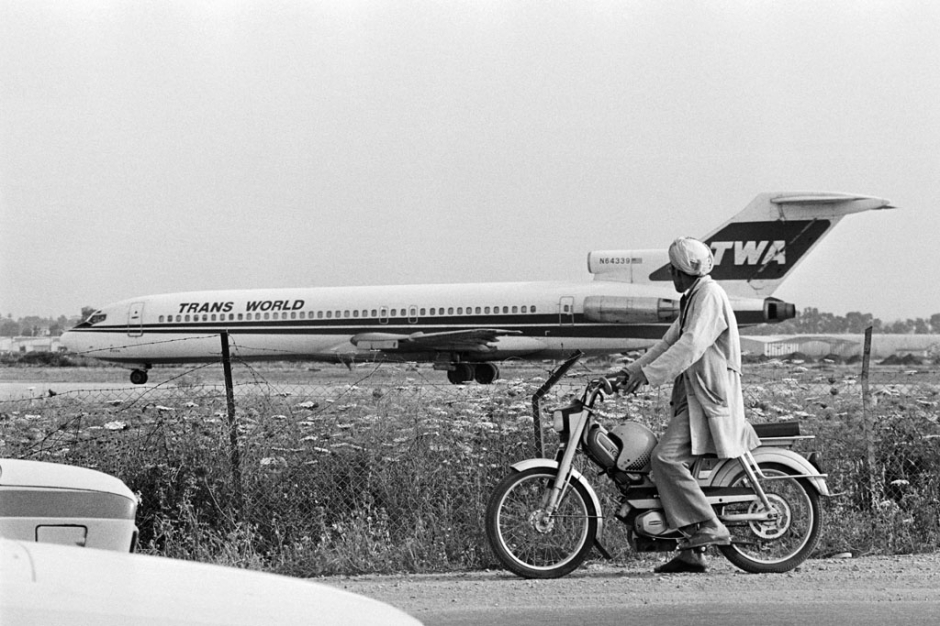
Hijackers Demands
Before leaving Beirut, Hamadi and Izz-Al-Din had demanded that Greek authorities release Ali Atwa and he is brought to Algiers. Otherwise, they said, they would kill all eight Greeks on the plane, including Singer Demis Roussos.
Atwa was a third terrorist who had not made it on to Flight 847 and was arrested at Athens airport by Greek police. The authorities complied and sent Atwa to Algiers in an Olympic Airways plane.
Two Algerian officials went aboard the 727 and began discussions with the hijackers. The negotiations eventually paid off. Thirty-two hours after the ordeal had started, the hijackers finally released Uli Derickson and her four colleagues, plus most of the remaining passengers.
Sadly the ordeal wasn’t over for the reaming 30 odd American passengers and flight crew who were ordered to fly back to Beirut for the third time, where they were held across the city for an additional 17 days. They were finally released in exchange for just 31 of the more than 700 prisoners Hamadi and Izz-Al-Din had initially sought.
Professional Throughout
Before Derickson exited the plane to safety, she paused to put on her uniform jacket. She wanted to ensure that before she left her aircraft, she was wholly composed and in full uniform, regardless of the terrible things she had witnessed, a true professional.
She resumed her flying career with TWA soon after the hijacking. However, Derickson’s terror wasn’t over. Some reports falsely accused her of giving the terrorists the names of Jewish passengers, and she received numerous threats from extremist groups.
When the truth was revealed about her efforts to protect the Jewish passengers by hiding their passports, she received further threats from other extremists. She and her family relocated to Arizona, and she subsequently retired in the late 1980s.
After trying her hand at real estate, she realised how much she missed flying and joined Delta in the early 1990s. Her Flight Attendant career continued until 2003 when she was diagnosed with cancer.
Uli Derickson sadly passed away on February 18, 2005, aged 60.
Nothing But Respect
Tom Collins a passenger on board the flight later said “She was clearly in control. She even made demands of the hijackers. We have nothing but the utmost respect for her and a debt of gratitude for her really heroic acts”.
Ms Derickson became the first woman to receive the Silver Cross for Valor, awarded by the Legion of Valor, a veterans organisation.
Throughout her life Uli Derickson never saw herself as a hero. She later said: “They threw me a hot potato, and I had to handle it.”
Her incredibly bravery, calm manner and professionalism is why she joins our Angels of the Sky.
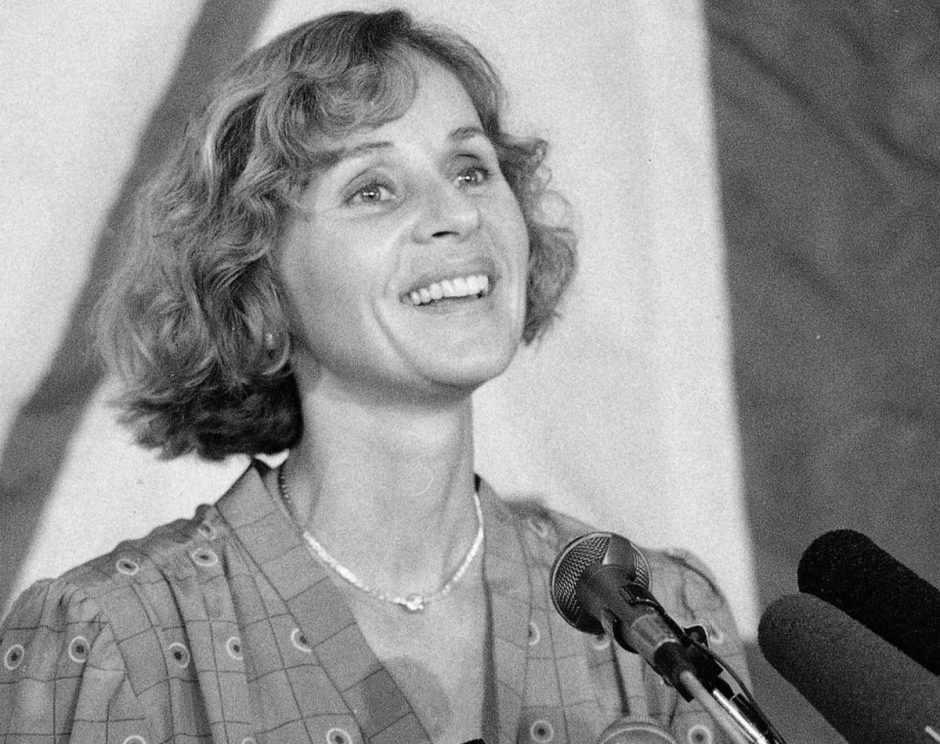
© confessionsofatrolleydolly.com by Dan Air.
Source link
